Rendering
For rendering, we added support for translucent X-Rite AxF materials with or without surface roughness, made AgX Colorspace our new tonemapper, and improved the Volume Scatter material by adding falloff attributes for controlling the fading out of Volume Scatter materials in X, Y, and/or Z. There are also Python and 4K UHDTV changes.
Video captions:
Translucent AxF Material
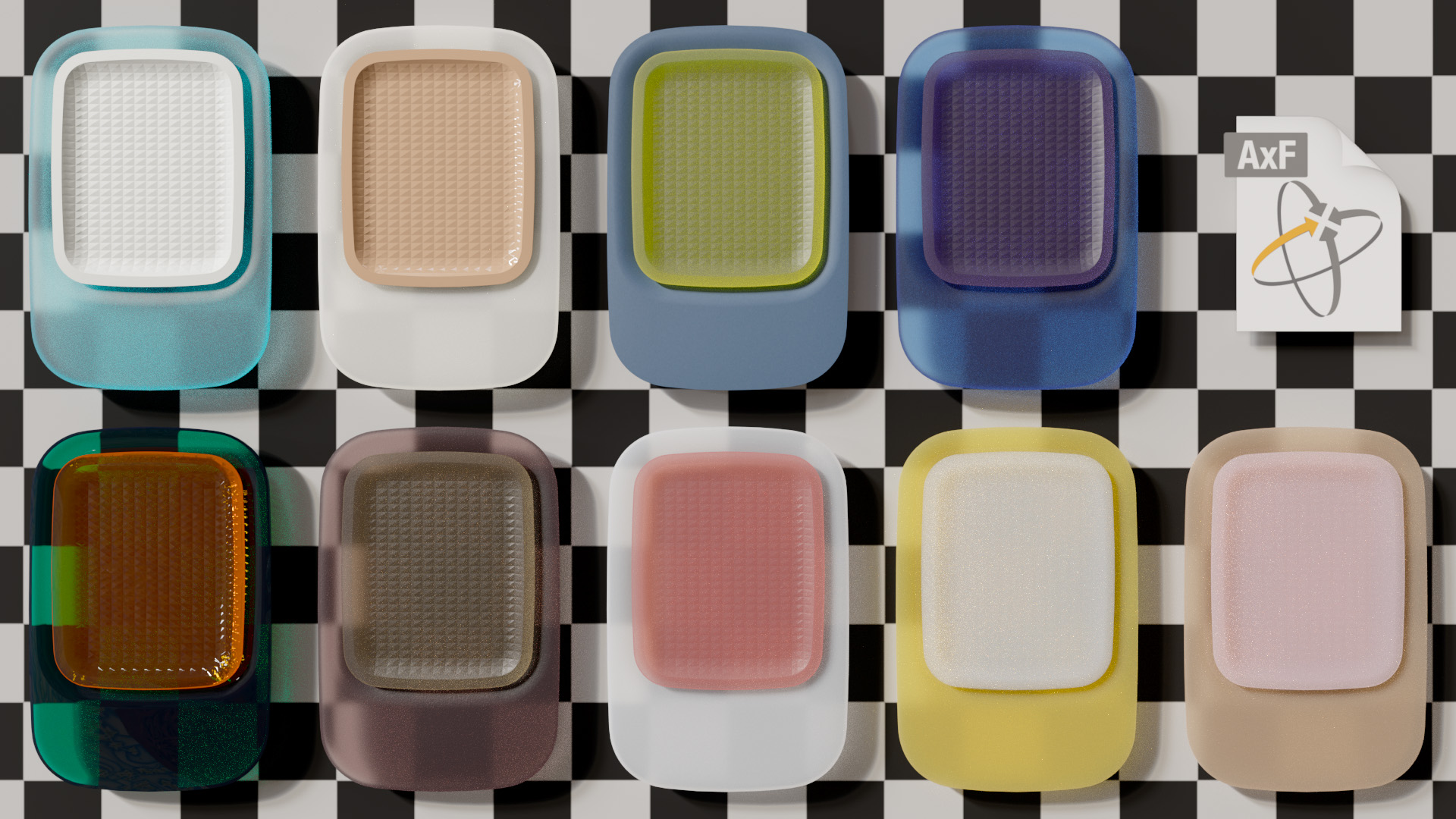
VRED now supports translucent X-Rite AxF materials with or without surface roughness. This is particularly useful for colored translucent plastics with a clear or matte appearance like those in the consumer product sector, as well as tail- and headlights, or decorative elements in the automotive sector. Their realistic representation and simulation can be particularly challenging, as color, reflection, refraction, light absorption, or volume scatter effects are often based on artistic impressions or cannot be represented in standard materials. The support of translucent AxF materials offers an ideal extension to deliver more physically accurate results and eliminates false assumptions in the material generation pipeline.
Please note, translucent AxF materials are only displayed correctly in raytracing. Furthermore, AxF measurements can be spectral, which in turn requires spectral rendering in VRED to accurately display colors.
AgX Colorspace
We've added AgX as our new tonemapper because it offers improved color handling in bright areas compared to ACES, where colors tend to shift their hue value and are too saturated. Bright colors in AgX move toward white, replicating the behavior of real cameras.

The following color sweep example, rendered in VRED, nicely illustrates the different hue shift of the two tone mappers across the color spectrum.

AgX has been included as a colorspace option in Reinhard RGB, Logarithmic RGB, Filmic, and Physical Camera tonemappers. Additionally, the Physical Camera tonemapper now features two new options: AgX and AgX Punchy.

Scatter Volume Falloff
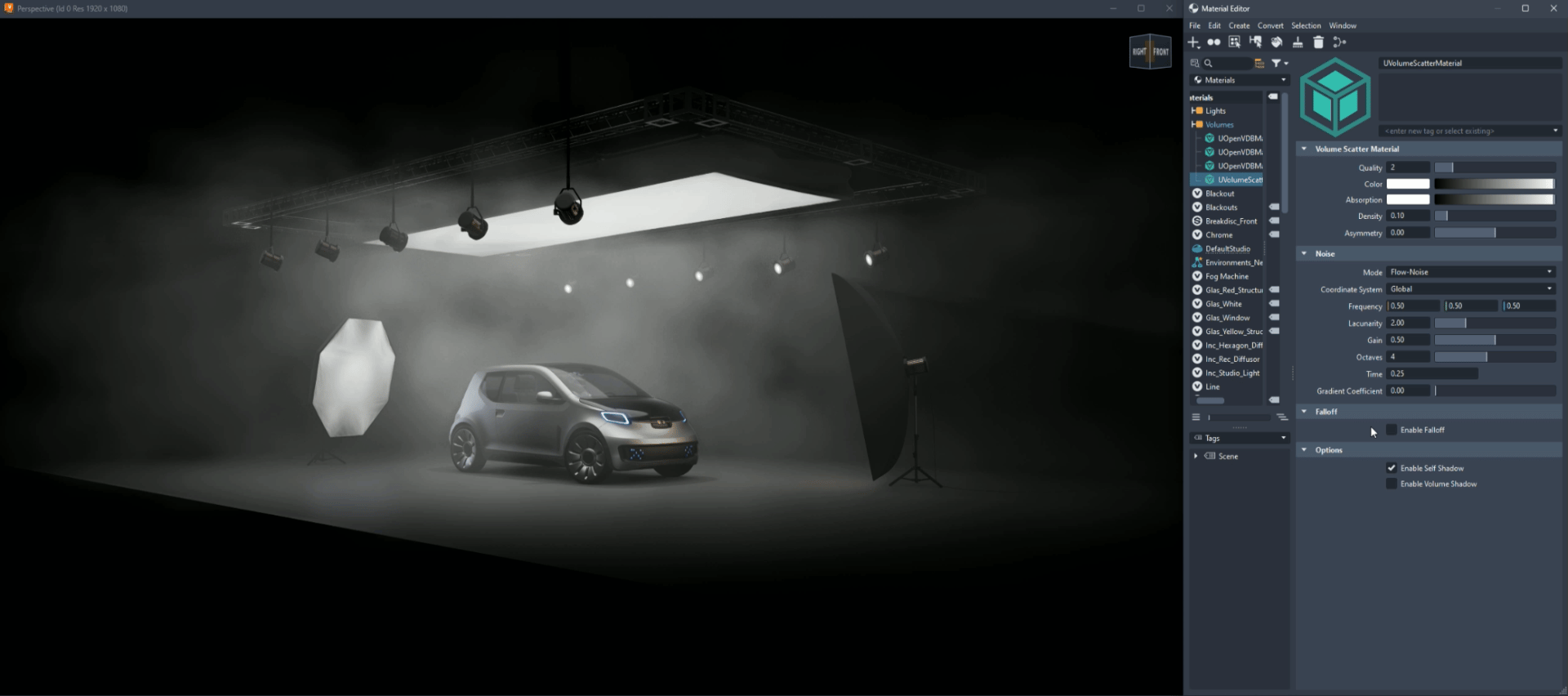
We've improved the Volume scatter material by adding the Falloff attributes for controlling the fading out of Volume Scatter materials in X, Y, and/or Z. The scale value sets the amount of falloff of each direction. The gain increases the falloff rate.
Enable Falloff - Enables the falloff of the Volume Scatter material for a smoother transistion along its edges.
No Falloff Default Falloff Values 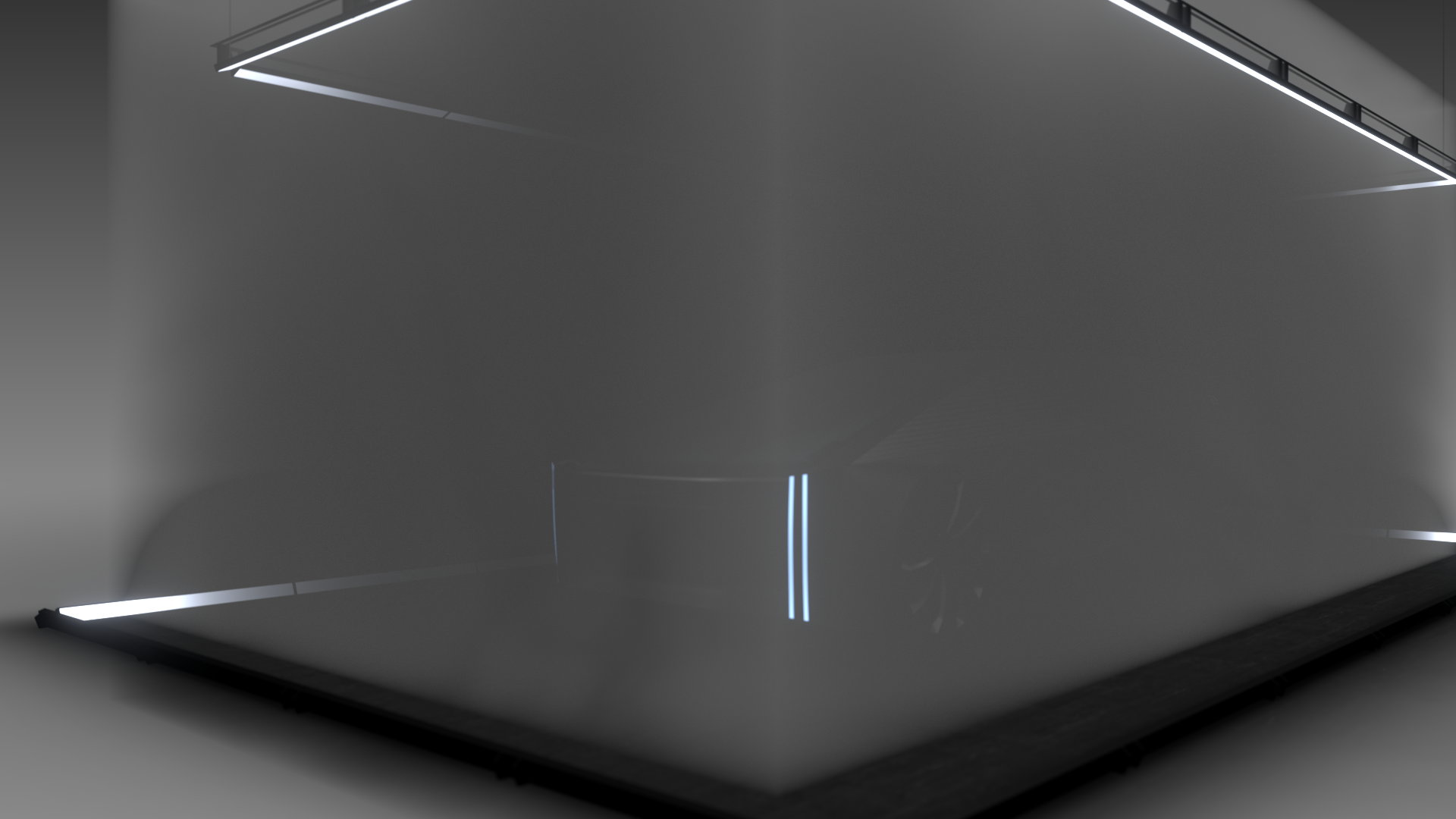
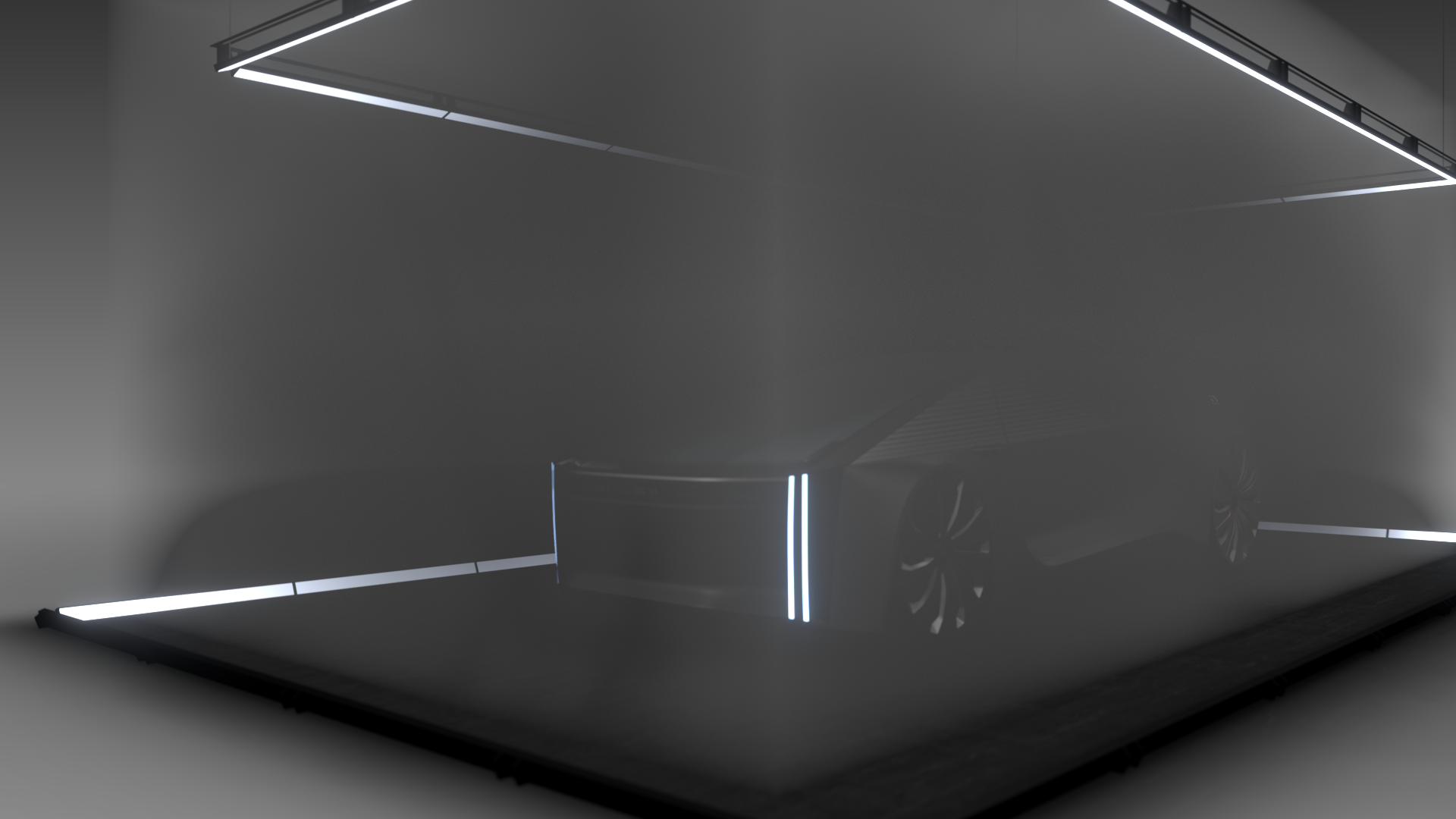
Offset - Only available once Enable Falloff is checked. Sets coordinates to control the position of the falloff origin using the X, Y, and Z fields. A value of -1 starts at the bottom of the given axis. A value of 1 starts at the top of the given axis.
Scale - Only available once Enable Falloff is checked. Sets the amount of falloff of each dimension using the X, Y, and Z fields. A value of 1 scales up the amount of falloff, resulting in less visible Volume Scatter material.
No Falloff Falloff Scaling for X/Y/Z = 0.50 
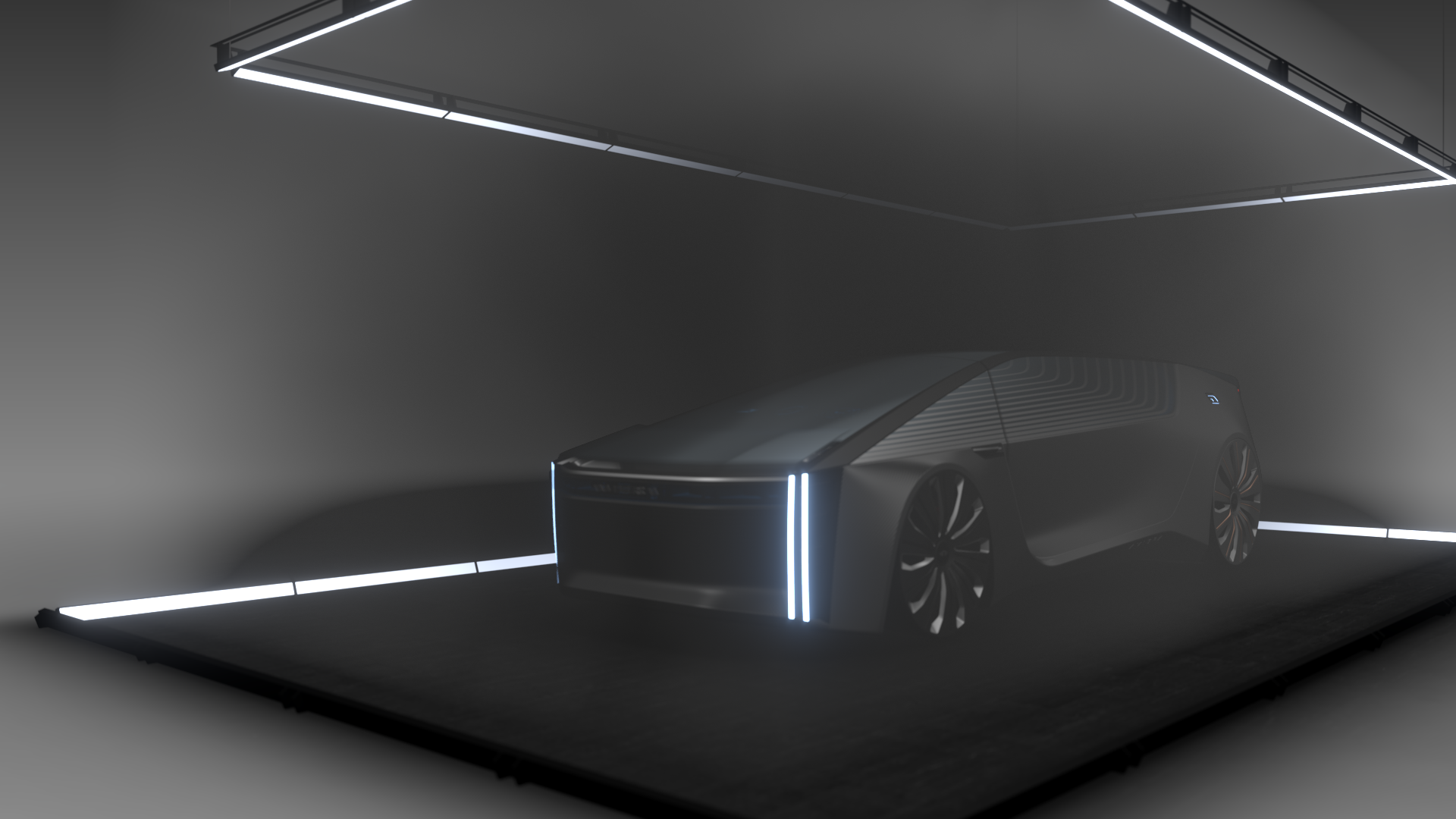
Gain - Only available once Enable Falloff is checked. Increases the falloff rate in different dimensions using the X, Y, and Z fields.
Python API v2
The Volume nodes are now properly accessible via the Python scripting interface.
4K UHDTV
We've added 4K UHDTV (3840 x 2160) to the Image Size Presets in the Render Settings > File Output > Image section.